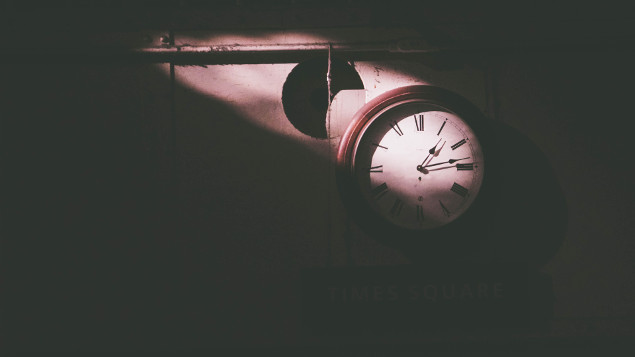I mean no disrespect by making reference to Neanderthals and their being gross. The point, in fact, is that while we have clean and well-equipped bathrooms, our earlier brethren were not as endowed. However, hygiene is innate so the hominids must have had a way to clean up (only a little more unpleasant to how we do it) afterward. But even as their know-how was only so much, there could have been a point in their lives when they got curious about bodily by-products. Didn’t we all have that scientific speculation in our youth? ‘Could urine be consumed? Could fart be more useful and could crap be recycled?’ It seems that as our intelligence progresses with technology, we are led to revisit childhood curiosities to actually prove them right.
The Auspicious Water of Lord Shiva aka The Urine
Even if you put it in a goblet and think of it as white wine, aware that it had departed by way of the nether orifices, it is still hard to stomach. But in the course of the centuries, some millions of people have stomached amaroli or Urine Therapy or AUT (Auto Urine Therapy).
It is claimed that it can prevent minor conditions like fluid retention, food allergies, stomach ache to rheumatoid arthritis, eczema, and pancreatic insufficiency to something far worse as cancer and diabetes. It even claims to cure hair loss and weight problems, minor troubles in life but consequential nonetheless. Not only has urine been revered as a holy liquid of health but it has also helped man through some deadly experiences:

- Morarji Desai, India’s ex-Prime Minister and leading supporter of AUT has lived the length of 99 years among other followers. The practice came from ancient India known as Shivambhu, which means the Hindu god Shiva’s sacred urine.
- China shocked the world in 2001 when news reported that over 3 million Chinese people consume their own urine for a healthier lifestyle and curative powers.
- In February 2006, The Independent reports about Paul Beck, a British hiker who miraculously survived for six days of abandonment on his own urine after accidentally dislocating his hip. The year before that, Mark Smith and Steven Freeman lived on their own urine for 11 days after finding themselves shipwrecked in the South China Sea.
Musical Pills
There’s one part of my mother’s childhood that I will never forget since the first time she shared it with me. She recounts that when they were big enough to laugh at farts, their uncle would reprimand them as he strikes his cane on the floor to shut them up. Then he would say “Farts should not be laughed at because even doctors get wealthy off them.” While that sounds a lot more hilarious in the vernacular, my granduncle could actually be telling the truth.
While the frequency with which we fart, the scent of it and its other characteristics are measuring instruments of our health, current studies are showing promise from flatulence. Did you catch wind of its possible benefits?
- We grimace at the stink but then a study at John Hopkins discovered that the (disturbing) aroma may actually help relax the blood vessels. The gas responsible for the odorous sensation, hydrogen sulfide, plays a role in blood pressure regulation as seen in current experiments on mice. From there, it may be possible to formulate a medical regimen for hypertension, says Dr. Solomon H. Synder, co-author of the study.
- H2S (Hydrogen sulfide) is also currently under study to cure erectile problems soon to rival Viagra. Also linked to the function of blood vessels as hypertension, hydrogen sulfide helped open blood vessels after injection thus enhancing penile erection. This was found in a study done on animals and later on to human subjects in Naples University.
Fecal Matters
A couple of years back, I came across Norman Mailer’s novel, ‘Ancient Evenings’. It is set in 20th Dynasty Ancient Egypt when Ramses IX is Pharaoh. I was pleasantly nonplussed to read that the pharaoh himself has an “Overseer of the Golden Bowl” aka the guy who takes out the “chthonic produce”. Every morning, the eunuch collects the golden bowl after the king has perused it, brings it to the garden to fertilize the fruits and vegetables strictly reserved for his highness and select guests. Now while that may be a work of fiction, it is not too far-fetched from reality.
According to WHO (World Health Organization), 10% of the world consumes crops that grow on Humanure or untreated human excrement. These are grains and vegetables produced by almost 200 million farmers in Latin America, Africa, China, India and Vietnam. But that’s still somewhat easy to digest.
Taking the revulsion level up a notch, what do you think about having someone else’s, for a lack of better words, shit, in your own system?
FMT (Fecal Microbiota Transplantation), fecal bacteriotherapy, or Monroe Transfer is a means of transplantation for CDI (Clostridium Difficile Infection) treatment. CDI happens when defensive bacteria in the gut flora are diminished by antibiotics. It causes diarrhea, flu-like symptoms and disease flares similar to inflammatory bowel disease-associated colitis. It could still eventually lead to a slow and certain death. When nothing else works, FMT is used as a last resort cure of all cures. A healthy human flora from a healthy human donor is transplanted via enema to culture healthier bacteria in the recipient’s colon.
- In this case, the appropriate sample was transplanted to the wife’s intestine via nasal tube. Yes, through the nose. “Till death will do them part” indeed because this husband and wife have tied their colonic flora as well. After 50 years of marriage, Bob Shoop willingly gave his stool sample to save his wife who was suffering CDI. After a few days, the patient testifies how much better she was feeling.
If you ask me…
I have a firm belief never to underestimate our body. Because even as our mind may be latently powerful, our body can perform certain feats itself. Somehow, farts, urine and other bodily excrements have shown some other uses than simply “waste” our time (pun intended). But am I willing to take them as others have practiced? I will cross the bridge when I get there. In the meantime, how about you?


